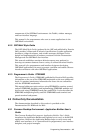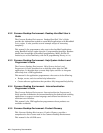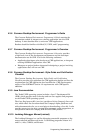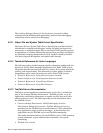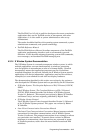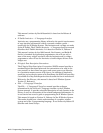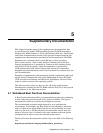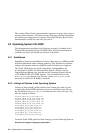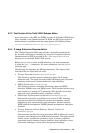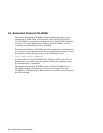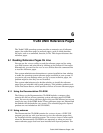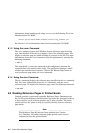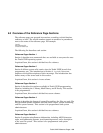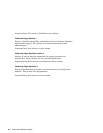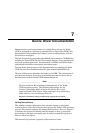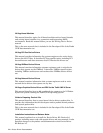5.2.3 Text Version of the Tru64 UNIX Release Notes
As an alternative to the PDF and HTML versions of the Tru64 UNIX Release
Notes included on the Documentation CD–ROM, an ASCII text version of
this document is included on the Operating System CD–ROM as follows:
mount_point/DOCUMENTATION/TEXT/Tru64_UNIX_V5_1A_Release_Notes.txt
5.2.4 X Image Extension Documentation
The X Image Extension (XIE) code provides a powerful mechanism for
the transfer and display of virtually any image on X-capable hardware.
Documentation for XIE is provided in the /usr/share/doclib/xie
directory on an installed Tru64 UNIX system.
Before you can view or print an XIE document, you must uncompress
it using the gzip -d command. For more information, see the gzip
(1)
reference page.
The following list describes the XIE documentation. The names of the
individual files are listed after the titles.
• X Image Extension Overview (overview.ps.gz)
This document provides general information about the X Image
Extension code. The topics covered include XIE design goals, historical
summary, architecture, element definitions, and subsetting.
• XIElib Specification (xielib.ps.gz)
This document contains reference information about the XIElib
functions, XIElib events, and XIElib errors. The Functions section covers
such functions as startup, LUT, photomap, ROI, photoflo, client data,
abort and await, photoflo element, technique, and free.
• XIE Sample Implementation Architecture (xieSIarch.ps.gz)
This document provides an architecture overview of XIE, including
chapters on extension initialization, memory management, request
dispatching, data representation, data structures, protocol requests,
DIXIE photoflo management, DDXIE photoflo management, and photo
elements.
• X Image Extension Protocol Reference Manual, Version 5.0
(XIEProto.ps.gz)
This document specifies the X wire protocol for XIE. It defines the syntax,
structure, and semantics of the XIE protocol elements. The topics covered
include syntax specification, parameter types, resources, pipelined
processing, import elements, process elements, export elements, events
and errors, techniques, service class, and protocol encodings.
Supplementary Documentation 5–3



